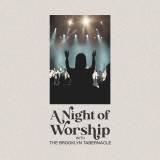No, Your Synthesizer Is Not the Holy Spirit

Which raises the question: What’s
going on?
Music and God’s Presence
We often see a connection between
music and the Holy Spirit’s activity in Scripture. Long before he was
king, a young David comforted Saul as he played his lyre (1
Sam. 16:23). Elisha was unable to prophesy until a musician was
brought into the room and started playing (2
Kings 3:14-16). The prophets of the Old Testament were
regularly accompanied by musical instruments (1
Sam. 10:5; 1
Chron. 25:1). The walls of Jericho fell flat at the sound of trumpets and
shouting (Josh.
6:20). In the New Testament, we’re told that being filled
with or by the Holy Spirit results in singing psalms, hymns and spiritual songs
(Eph.
5:18-21).
That partly helps explain why people
often sense God’s presence in a greater way in the midst of congregational
singing. The sound of Spirit-enabled believers, lifting up their
voices to proclaim the greatness of God and the glory of
Jesus Christ makes us more aware of God’s goodness, majesty and nearness.
But while music and the Holy Spirit’s
presence can be related, they’re not the same thing. That’s why David’s lyre comforted
Saul at one point and on another occasion led him to try to pin David to the
wall with his spear (1
Sam. 18:10-11).
Useful vs. Necessary
Music is a means. God is the source.
God often uses physical means to do his work. But when we start to view a
means of grace as a “need” for worship, it can subtly take on
the characteristics of a mediator (1
Tim. 2:5). We think certain musical sounds enable us to
experience God’s presence. Like the time a leader told me the synth melody
I was playing “had healing in it.” Not sure how he reached that
conclusion.
Wayne Grudem says one of the
Holy Spirit’s “primary purposes in the new covenant age is to manifest the
presence of God, to give indications that make the presence of God known”
(Systematic Theology, pg. 641). God might use music as a setting to
manifest his presence, but music isn’t required. There is a
difference between music being something God uses and something he needs. More often, the Spirit
reveals God’s presence through preaching and various spiritual gifts, not
simply playing music (1
Cor. 2:3-5; 1
Cor. 12:4-7).
What music does do is affect us emotionally. It
can soften our hearts to listen or inspire a sense of expectancy. It can
make transitions seem less choppy. It can cover up extraneous noises and set a
reverent tone, as organ preludes have been doing for years. But that doesn’t
mean God is making us aware of his presence, or worse, that we’re being
“led into God’s presence.” In his insightful book Music Through the
Eyes of Faith, Harold Best warns,
“Christian musicians must
be particularly cautious. They can create the impression that God is more
present when music is being made than when it is not; that worship is more
possible with music than without it; and that God might possibly depend on its
presence before appearing.” (p. 153)
Everyone knows a
synthesizer is not the Holy Spirit. But judging from worship albums,
YouTube videos and comments I’ve heard people make, that point might need to be
clarified.
No, Your Synthesizer Is Not the Holy Spirit
 Reviewed by Admin
on
12:29:00 PM
Rating:
Reviewed by Admin
on
12:29:00 PM
Rating:
 Reviewed by Admin
on
12:29:00 PM
Rating:
Reviewed by Admin
on
12:29:00 PM
Rating:
















Post a Comment